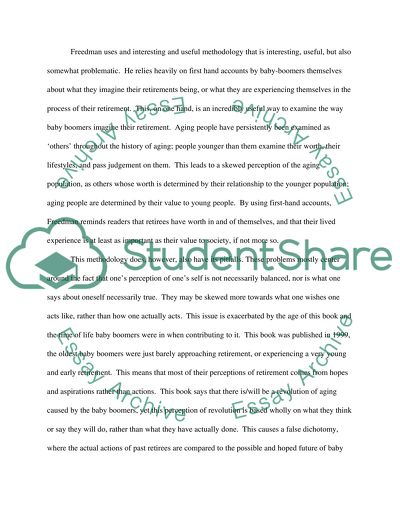Cite this document
(“Prime Time: How Baby Boomers Will Revolutionize Retirement and Book Report/Review”, n.d.)
Retrieved from https://studentshare.org/health-sciences-medicine/1431158-prime-time-how-baby-boomers-will-revolutionize
Retrieved from https://studentshare.org/health-sciences-medicine/1431158-prime-time-how-baby-boomers-will-revolutionize
(Prime Time: How Baby Boomers Will Revolutionize Retirement and Book Report/Review)
https://studentshare.org/health-sciences-medicine/1431158-prime-time-how-baby-boomers-will-revolutionize.
https://studentshare.org/health-sciences-medicine/1431158-prime-time-how-baby-boomers-will-revolutionize.
“Prime Time: How Baby Boomers Will Revolutionize Retirement and Book Report/Review”, n.d. https://studentshare.org/health-sciences-medicine/1431158-prime-time-how-baby-boomers-will-revolutionize.


